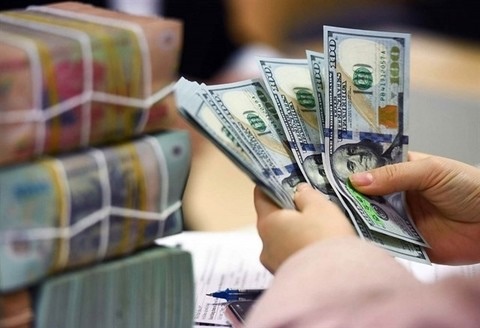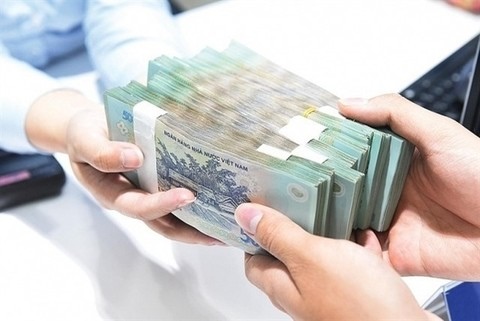Lowest state budget deficit in decade inches closer
Lowest state budget deficit in decade inches closer
This year, Vietnam may see the lowest state budget deficit in the past decade, reflecting the government’s sturdy solutions for managing the nation’s coffers.

The government last week reported to the National Assembly that by the end of this year, it is expected that the total state budget deficit will be about 3.42 per cent, or VND174.3 trillion ($7.92 billion), of GDP – lower than the permissible limit of 3.5 per cent set earlier by the National Assembly.
In late 2016, the legislature set a target of VND178.3 trillion ($8.1 billion) for this year’s state budget deficit.
Governmental statistics estimate the total state budget revenue for this year is likely to hit VND1,239.5 trillion ($56.34 billion), up 10.1 per cent against last year, while the total budget spending is forecast to reach VND1,414 trillion ($64.26 billion), up 9.3 per cent against 2016.
According to the National Assembly’s Financial and Budgetary Committee, this year’s budget deficit rate is considered to be the lowest over the past 10 years, when the budget deficit always stood at an average rate of more than 5 per cent of GDP. For example, the budget deficit was $11.54 billion last year, $13.32 billion in 2015, and $10.1 billion in 2014.
The committee’s Chairman Nguyen Duc Hai said that the improved state budget situation “has demonstrated great efforts by the government’s micro-monitoring, and the responsibility of the business community, the financial sector, and the whole political system nationwide. It has helped keep the country’s public debt at a safe limit of below 65 per cent, as requested by the National Assembly.
“The government has done a good job in managing the state budget, with unnecessary sums pared down,” Hai said.
Efforts by Vietnam’s government to reduce a state budget deficit caused by accumulated fiscal imbalances have recently received applause from the Asian Development Bank (ADB), the World Bank, and the International Monetary Fund (IMF).
In its update on Vietnam’s economy released last month, ADB stated that the government has had “very good results in reducing state budget deficits,” and “the state budget revenue has been strongly increasing”.
“Like in 2016, total budget revenue rose 18.2 per cent in this year’s first half, thanks to a hike in revenue from value-added tax, corporate income tax, personal income tax, and non-tax sources,” noted the report.
ADB also stated that amid a rise in budget revenue, the government has done a very good job in tightening spending, which increased below 10 per cent in this year’s first half.
“As revenue growth exceeds expectations, the government’s target of trimming the budget deficit to the equivalent of 3.5 per cent of GDP in 2017 and 4 per cent in 2018 looks broadly attainable,” said Eric Sidgwick, ADB country director for Vietnam.
The World Bank said in its July update on Vietnam’s economic situation that Vietnam has had “signs of fiscal consolidation”.
This is very important as the country’s access to concessional external financing “will naturally continue to tighten as Vietnam solidifies its middle-income status and becomes more reliant on international and external capital markets as a source of government financing”, said the report.
“The government has reinforced its commitment to rein in the fiscal deficit over the medium term in order to contain further increases in the public debt-to-GDP ratio. Fiscal consolidation is crucial to contain the fiscal deficit and stabilise public debt over the medium term,” said Sebastian Eckardt, lead economist and acting country director for the World Bank in Vietnam.
According to an IMF document on Vietnam’s economic situation released in July, the IMF executive board “considered the tightening of the fiscal stance as appropriate and welcomed the [Vietnamese] authorities’ intention to ensure that consolidation is growth-friendly”. They also concurred with Vietnam’s intention to reduce the deficit to 3.5 per cent of GDP by 2020 and to maintain public debt below the legal limit of 65 per cent of GDP.













